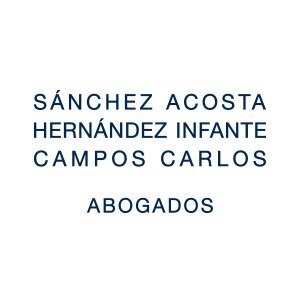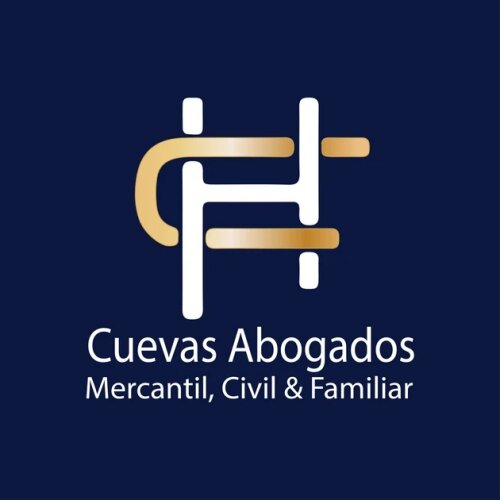Best Native People Lawyers in Guadalajara
Share your needs with us, get contacted by law firms.
Free. Takes 2 min.
List of the best lawyers in Guadalajara, Mexico
About Native People Law in Guadalajara, Mexico:
Guadalajara, Jalisco is the second largest city in Mexico and is home to a diverse range of cultures, including Native People or indigenous communities. The Mexican constitution and several international treaties Mexico is part of, recognize and protect the rights of Native People. This includes rights to land, language, health, consultation, and a cultural life. Jalisco is home to several indigenous communities including the Huichol (Wixárika), Nahuas, Coca, and Purépechas among others. These communities are governed by local customs and their rights are recognized at a federal level.
Why You May Need a Lawyer:
Individuals may require a lawyer when there are disputes or legal issues related to indigenous land claims, boundaries or natural resources. Discrimination against Native People, challenges in accessing public services, or matters related to cultural preservation and indigenous intellectual property are other areas where legal help may be beneficial. Lawyers also play a crucial role in ensuring that the government and corporate entities respect the right to Free, Prior and Informed Consent (FPIC) of Native People, especially in cases involving development projects or extractive activities in indigenous territories.
Local Laws Overview:
The Constitution of Mexico recognizes and guarantees the right of Native People to self-determination, self-governance, land access, protecting cultural heritage, and development according to their aspirations and cultures. Further, Jalisco's State Law for the Development of Indigenous Peoples protects these rights and provides measures against discrimination and promotes equal opportunities.
Frequently Asked Questions:
How are the rights of indigenous peoples protected in Guadalajara?
The rights of Native People in Guadalajara are protected by the Constitution of Mexico and state laws of Jalisco. These laws confirm their rights to self-determination, development, consultation, and non-discrimination among others.
Can indigenous communities in Guadalajara exercise self-governance?
Yes, the Mexican Constitution recognizes the right of indigenous communities to self-governance and to apply their own normative systems in regulation and settlement of their internal conflicts.
What is done to protect the cultural heritage of indigenous communities in Guadalajara?
Jalisco's State Law for the Development of Indigenous Peoples promotes respect for indigenous cultures, languages, traditions, and world-views. It also promotes the inclusion of these aspects into the state's educational system and preserves the works of art and handcrafts of indigenous communities.
Is there any legal recourse for discrimination against indigenous peoples in Guadalajara?
Yes, both the Mexican constitution and state laws of Jalisco prohibit any form of discrimination, including against indigenous peoples. Claims can be made to the State Human Rights Commission or the National Council to Prevent Discrimination (CONAPRED).
Can legal advice be sought for understanding land rights?
Yes, it is highly recommended that indigenous communities or individuals seek professional legal advice to understand and assert their land rights. Lawyers can help navigate the complex administrative procedures and provide representation in case of disputes.
Additional Resources:
The National Institute of Indigenous Peoples (INPI) and the National Commission for the Development of Indigenous Peoples (CDI) are government agencies mandated to promote the rights, culture, and development of indigenous peoples in Mexico. The Mexican Commission for the Defense and Promotion of Human Rights also offers resources and support. Numerous NGOs like SER Mixe and CEDIAC also work with indigenous communities in Jalisco to promote their rights and provide assistance where necessary.
Next Steps:
If you need legal assistance, it's important to find a lawyer who is familiar with Native People law in Guadalajara. Consult with multiple legal professionals and choose a lawyer who understands your specific needs. Be prepared to provide all relevant information regarding your case and inquire about potential costs, timelines and likely outcomes. It's also recommended to verify credentials and track record of your legal counsel.
Lawzana helps you find the best lawyers and law firms in Guadalajara through a curated and pre-screened list of qualified legal professionals. Our platform offers rankings and detailed profiles of attorneys and law firms, allowing you to compare based on practice areas, including Native People, experience, and client feedback.
Each profile includes a description of the firm's areas of practice, client reviews, team members and partners, year of establishment, spoken languages, office locations, contact information, social media presence, and any published articles or resources. Most firms on our platform speak English and are experienced in both local and international legal matters.
Get a quote from top-rated law firms in Guadalajara, Mexico — quickly, securely, and without unnecessary hassle.
Disclaimer:
The information provided on this page is for general informational purposes only and does not constitute legal advice. While we strive to ensure the accuracy and relevance of the content, legal information may change over time, and interpretations of the law can vary. You should always consult with a qualified legal professional for advice specific to your situation.
We disclaim all liability for actions taken or not taken based on the content of this page. If you believe any information is incorrect or outdated, please contact us, and we will review and update it where appropriate.













